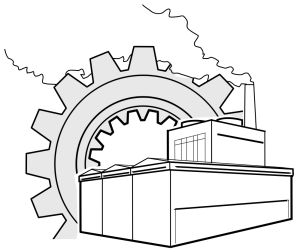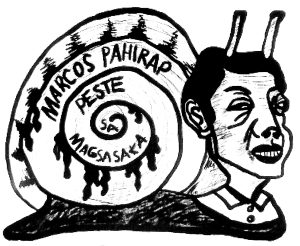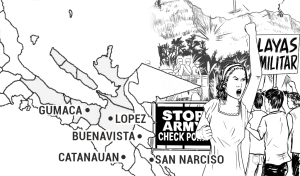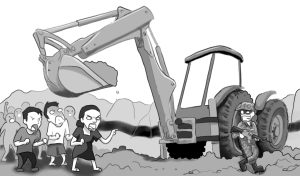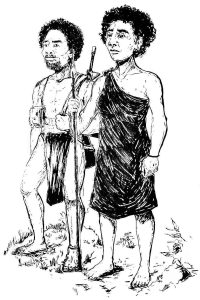Persevere in advancing the struggle for wage increases

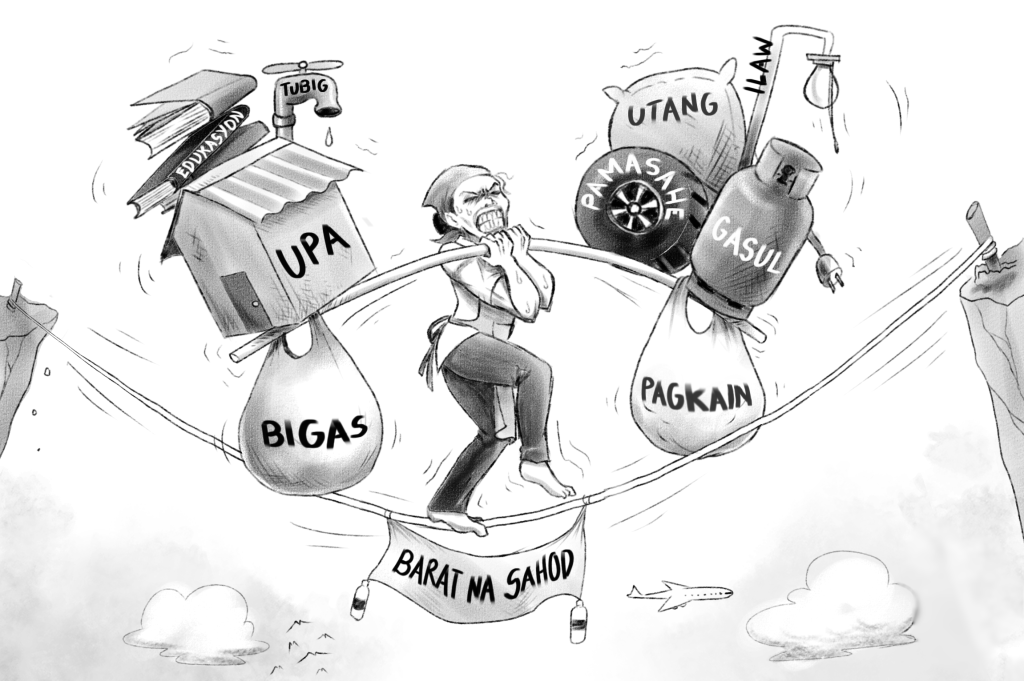
Inflation rose to 7.7% in October (the highest since 2008) in the face of relentless increases in the prices of oil, food, housing, medicine, education and other basic necessities. The people’s extreme poverty and hardship are becoming more pervasive as standards of living continue to fall. The suffering of millions has intensified as a result of a series of widespread flooding that destroyed their homes and livelihoods.
The US-Marcos II regime is playing deaf and blind to the grievances of the toiling masses. It refuses to address the demand for urgent measures to lift the large majority of the people from the quagmire of poverty. Instead, Marcos Jr chooses to continue implementing neoliberal policies which for decades have caused the destruction of the local economy and inflicted worse suffering to workers and the entire people.
Marcos Jr continues to implement the policy of cheap labor and other programs to attract foreign capitalist investors as his government’s central economic policy. The people’s economic crisis and socioeconomic conditions are set to further worsen amid the peso’s continuing devaluation against the dollar, the rapid increase in government debt, corruption and wasteful police and military spending of the people’s money.
Ordinary people could no longer afford the ₱1,100 minimum amount required to meet the daily needs of a family of five (“family living wage” or FLW). The ₱570/day minimum wage for workers in the National Capital Region (the highest in the country) is just about half of the FLW. Large numbers of workers receive even less than the minimum.
The livelihood of the majority of the toiling masses can longer keep up. Amid the sharp drop in the people’s livelihood, the just clamor of the Filipino working class and people for immediate wage and salary increases resounds even more. At different levels and areas of struggle, workers demand wage increases as an urgent measure to allow their families the keep up with the worsening economic and social crisis.
The struggle for higher wages is the foremost economic struggle of the entire working class. It is especially significant now amid the rapid deterioration of the socioeconomic conditions of the toiling masses and entire people. This must be thoroughly and militantly waged amid the anti-worker US-Marcos II regime’s refusal to heed their grievances. Courage and determination to fight is needed more than ever amid the armed suppression of unions and organizations of workers and the toiling masses.
To advance the struggle for wages, the trade union movement must expand and strengthen, carry out various forms of collective action and advance the workers’ strike movement. Victories in the struggle for wages, as well as in the fight against contractualization and improvement of working conditions, depend on the actual strength, capability, broadness, vitality and organization of the trade union movement as a whole, and that of militant unionism in particular.
Due to the relentless attack on unions in the past three decades, the number of unions is now very low (only in 6% of enterprises with at least 20 workers in 2020). It is necessary to generate a widespread movement for organizing unions in the largest and greatest number of workplaces and enterprises. These must be forged as centers of workers’ militant action.
In the coming weeks and months, millions of workers must be reached and aroused through a widespread campaign of propaganda and education in factories and communities, as well as offices and schools, to underscore the correctness, justness and urgent need to raise wages and salaries amid the socioeconomic crisis, and expose the rotten and twisted reasoning of Marcos and his officials. Workers and the masses should collectively manifest their grievances through protest actions in factories and streets in various forms and sizes.
The widest range of organized workers must be brought together to push the reactionary state to address the reasonable demands for general wage increases, a national minimum wage, and abolition of the anti-worker RA 6727 that established “wage regionalization,” and RA 6715 (or Herrera Law) that paved the way for labor contractualization.
The country’s economy continues to decline due to continued implementation of neoliberal policies which only weakens the local economy and bring greater suffering to workers and the whole people. Capitalists have long imposed policies of wage suppression, slave-like working conditions in factories, and oppression of workers in violation of labor rights. This is demonstrated clearly in labor enclaves where, behind the rhetoric of “development,” workers are subjected to the worst forms of exploitation, condemning the country to backward conditions, to the benefit of giant foreign companies.
Amid intensifying economic crisis, the broadest unity of the toiling masses and democratic classes should be built to push the demand for jobs, for the repeal of onerous taxes, for commodity price controls, for respect of housing rights, for a stop to destructive projects, and for expanding social services and other initiatives for the people’s well-being.
In the various fields of struggle, the most crucial is widespread workers’ action and resistance in factories and in the streets demanding higher wages. It it through this that the working class is able to lead the people’s economic struggles.
The struggle for higher wages is not quickly completed. History teaches us the importance of heightening workers and people’s protests. Conversely, wages have been kept low and unable to keep up with rising costs, and no longer reflecting the true value of a labor-power because their unions and struggles have been suppressed.
Majority of the current generation of workers have yet to experience widespread strikes and street actions similar to that of the 1980s. They must be urged to study history so they can learn of their intrinsic strength as workers based on their unions and collective action.
This widespread campaign for wage increases should strengthen the fight against fascist repression and the assertion of the right to unionize and express their grievances. The struggle for wages should be strictly linked to the fight against the policy of cheap labor and other oppressive imperialist dictates. Workers must also relate their struggles with the antifeudal and antifascist struggles in the countryside.
Workers’ consciousness should be raised for them to fully grasp the nature of capitalist exploitation behind the issue of low wages, as well as the relationship of the workers’ movement to the movement for national freedom and genuine democracy in the country.



